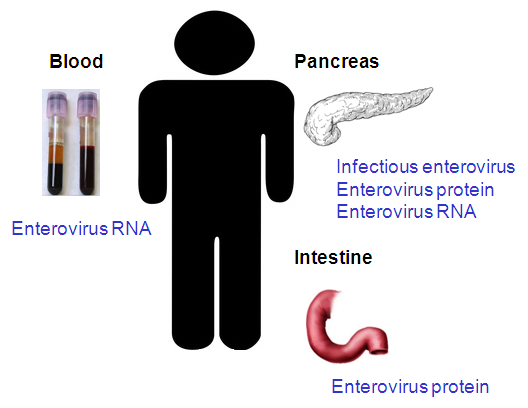 The issue of diabetes is front and centre around the UAE at the moment. in Khaleej Times?s wknd. magazine Wasim Akram recently spoke about his battle with the disease, showing that it can affect everyone, even sports stars. in Dubai, the Beat Diabetes Walkathon on November 12 attracted over 7,500 people, scheduled just ahead of World Diabetes Day on November 14.
The issue of diabetes is front and centre around the UAE at the moment. in Khaleej Times?s wknd. magazine Wasim Akram recently spoke about his battle with the disease, showing that it can affect everyone, even sports stars. in Dubai, the Beat Diabetes Walkathon on November 12 attracted over 7,500 people, scheduled just ahead of World Diabetes Day on November 14.
Now it’s the turn of Abu Dhabi to raise awareness about the ‘silent killer’ with the Walk UAE 2010 walkathon taking place on November 26 around Yas Marina Circuit. with so much publicity surrounding issues of diagnosing, avoiding and beating diabetes, it’s a wonder the disease is still on the rise, but it is — particularly in Gulf countries.
Walk UAE 2010 is now into its fourth year as it tries to battle the growing problem. Run in conjunction with Imperial College London Diabetes Centre (ICLDC), this year organisers aim to equal or beat the 10,000 turnout they saw in 2009.
Dr Maya Taysir Barakat is the medical research director and consultant endocrinologist at ICLDC, from where she told Khaleej Times more about the walkathon event and the mysterious disease itself.
If you are predisposed to diabetes, you can reduce your risk of developing it by up to 58 per cent simply by following a healthy lifestyle with regular physical activity such as brisk walking.
Walk UAE has proven to be a great way for us to get the message across to the community; indeed the tag line is ‘Start Walking; Live Healthily.’
The numbers speak volumes: over the past four years, through the public health awareness campaign, ICLDC has offered diabetes prevention, education and treatment to more than 90,000 people, and more than 20,000 people have joined one or more of the Walkathons. the number of people seeking medical care for diabetes, or for symptoms that may be related to diabetes, is increasing. we are pleased that people feel comfortable approaching physicians; if caught early, diabetes can be managed, and even prevented.
The key to the prevention of type 2 diabetes, even in those with predisposing genes, is to maintain a normal body weight and to exercise regularly, for instance by a 30-minute brisk walk a day. the Walkathon is just one way to show the community that a five-kilometre walk can be fun for the family!
Recent figures from the International Diabetes Federation (IDF) suggest that 285 million people are living with diabetes, worldwide. Indeed, five GCC countries feature in the top eight countries in terms of diabetes prevalence as a percentage of the population.
In the UAE, diabetes currently affects 18.7 per cent of the UAE adult population, the second highest prevalence worldwide after the Pacific Ocean island of Nauru. These statistics indicate that the region has high risk factors for diabetes, mostly related to rising obesity rates and physical inactivity.
A sedentary lifestyle and an increasingly unhealthy diet have contributed to the rise in obesity, which have fuelled diabetes prevalence in the region. It is important that we stay focused on educating region-wide populations on management and indeed prevention of diabetes.
The issue of taxation of unhealthy food (in particular sugar-sweetened soft drinks) has been extensively studied internationally, and indeed has been implemented in some areas around the world. Policies that encourage people to eat healthier, exercise more and lead active lifestyles will help build public momentum.
Obesity in children is known to increase the risk of developing type 2 diabetes and heart disease in adulthood. recent statistics show that childhood obesity is also increasing at an alarming rate. North America, Mexico, Spain, Italy and several countries in the GCC (including the UAE) have childhood overweight (including obesity) rates in excess of 30 per cent. It is this rise in childhood obesity that is responsible for the increase of type 2 diabetes in younger people. Type 2 diabetes has also been reported even in pre-school children.
The most common symptoms relate to feeling thirsty, needing to pass urine frequently, and fatigue. however, one of the biggest challenges with the condition is that frequently there are no symptoms, resulting in a delay in diagnosis.
There are two main types of diabetes: type 1 is an auto-immune condition where the pancreas is attacked by auto-antibodies causing it to fail. This necessitates treatment with insulin. On the other hand, type 2 is mainly brought on by an unhealthy, inactive lifestyle and weight gain. in this type of diabetes, there is insulin in the body, but the body becomes resistant to it so the insulin becomes largely ineffective. in recent years, we have seen a (rapid) rise in type 2 diabetes across all age groups.
The Centre is a one-stop, state-of-the-art, out-patient facility that specialises in diabetes treatment, research, training and public health awareness. in the past four years, ICLDC has offered diabetes prevention, education and treatment to more than 90,000 people. for more information visit: icldc.ae